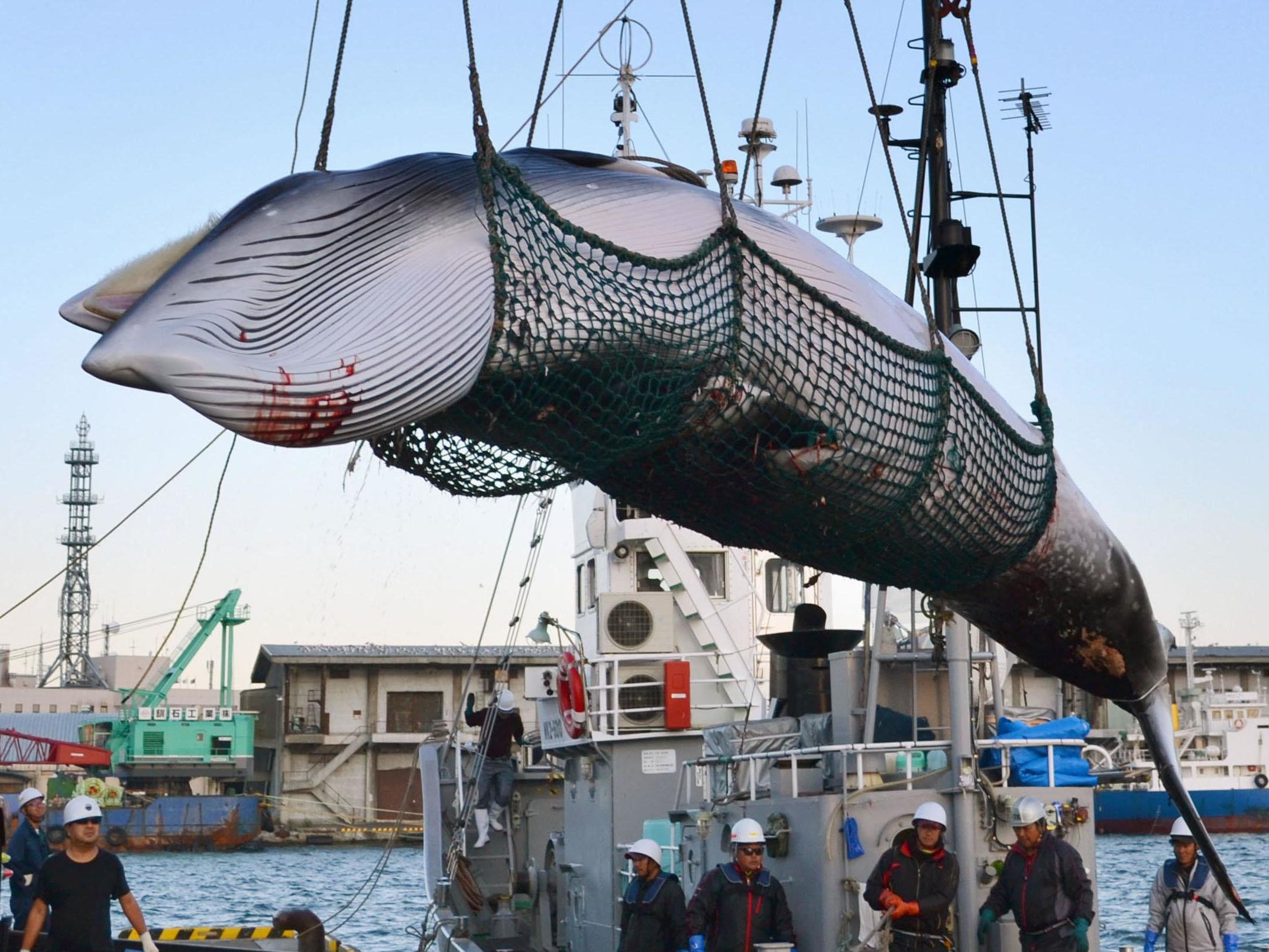Japan looks to resume commercial whaling for first time in 30 years as it considers leaving International Whaling Commission
‘There are fishermen in Japan making their living by whaling and we can't simply end it’

Your support helps us to tell the story
From reproductive rights to climate change to Big Tech, The Independent is on the ground when the story is developing. Whether it's investigating the financials of Elon Musk's pro-Trump PAC or producing our latest documentary, 'The A Word', which shines a light on the American women fighting for reproductive rights, we know how important it is to parse out the facts from the messaging.
At such a critical moment in US history, we need reporters on the ground. Your donation allows us to keep sending journalists to speak to both sides of the story.
The Independent is trusted by Americans across the entire political spectrum. And unlike many other quality news outlets, we choose not to lock Americans out of our reporting and analysis with paywalls. We believe quality journalism should be available to everyone, paid for by those who can afford it.
Your support makes all the difference.Japan is considering whether to resume commercial whaling for the first time in 30 years by pulling out of an international accord banning the practice.
Officials are debating whether to leave the International Whaling Commission (IWC) after decades of unsuccessful campaigning to win support from other members to restart hunts.
Japan’s fisheries agency said on Thursday no final decision had been reached on whether the country would leave the IWC agreement preventing commercial whaling, but the measure was being considered.
The IWC ban on hunting whales for commercial purposes, which was agreed in 1982 and came into effect four years later, was introduced in an attempt to boost dwindling stocks.
However, Japan argues populations have recovered enough that the industry should now be allowed to target more common species such as the minke whale, a move the majority of IWC member nations disagree with.
Tokyo has made several proposals to the organisation on resuming hunting, the most recent of which was denied in September this year.
“There are fishermen in Japan making their living by whaling and we can't simply end it,” one Japanese government official told newspaper Mainichi Shimbun.
Japan still participates in whaling, with boats allowed to take part in limited hunts under “scientific research” permits killing roughly 500 whales each year.
In the final season before restrictions on commercial hunting were introduced in 1986, Japanese boats caught more than 2,700 whales.
Sam Annesley, executive director of Greenpeace Japan, urged the Japanese government not to withdraw from the IWC.
“This is a grave mistake which is out of step with the rest of the world,” he said.
“This snub to multilateralism is unacceptable and deeply concerning but let us not forget that the Japanese fleet has continued its operations in violation of the findings of the International Court of Justice in past years.
“The Japanese government has a history of failing to work with the IWC on conservation initiatives designed to protect and recover whale species, many of which are yet to return to healthy population numbers since widespread commercial whaling was ended over 30 years ago.”
Kitty Block, president of Humane Society International said Japan would become a “pirate whaling nation” acting “completely outside the bounds of international law”, if it were to leave the IWC.
“If Japan were to cease all whaling, not just on the high seas, then leaving the IWC would not be objectionable,” she said.
“For the absence of Japan could allow the IWC to finally embrace its conservation mandate by addressing the myriad threats facing cetaceans worldwide.
“However, as long as Japan kills whales along any coast or any in ocean then it must remain in the international organisation with jurisdiction over all great whales.”
Japan has been a member of the IWC since 1951, but has an uneasy relationship with an organisation it believes has become fundamentally anti-whaling after originally being set up to address sustainability in the industry.
It previously threatened to withdraw from the IWC in 2007, but was later convinced to remain in the agreement by several member nations including the United States.
Additional reporting by AP
Join our commenting forum
Join thought-provoking conversations, follow other Independent readers and see their replies
Comments